The Women’s Academic Network (WAN) has been a not-so-quietly growing feature of academic life at BU since September 2013. For many women academics (those in the know) it offers an annual programme of events, activities and career support in a vibrant and open or lively and confidential environment. Sometimes these events are geared specifically for women academics and women PGR, but many are open-to-all colleagues and students.
The success of WAN, being non-corporate, depends very heavily upon the hard work of its co-convenors galvanised by the wider goodwill and enthusiasm of women colleagues. Plus we have a small but invaluable annual budget to run operations – thank you ULT! But despite having 24 hours written into the WAN co-convenor yearly workload allocation (nowhere near enough, believe me) we sometimes struggle to get the message out about our great events, to advertise membership to women colleagues (especially new colleagues to BU), and to effectively manage our rather clunky, home-made communication systems.
But things are changing! We hope to have our own BU webpage at long last, to revive and update our languishing Facebook page, keep up the tweets and to create real posters round BU to promote events. Through these means we plan to reach out more effectively to all those people who may not know that there is a forum here of like-minded, pro-women colleagues for every faculty and corner of BU. It’s called WAN. Because as one of our keen member’s has just expressed it, ‘WAN is the most collegiate forum at BU’. We think so too.
So here is a handy list of upcoming WAN events for your diaries, where we hope to see more colleagues interested in supporting and/or joining our ever-expanding network:
March 8, 2018 International Women’s Day (IWD) with WAN, 12.00-15.00, Fusion.
There are a number of IWD events going on at BU every year. Here is ours for 2018 which is open-to-all:
SPEAKER EVENTS FOR IWD:
Josie Fraser (she of the ‘In the Valley of the Trolls’ talk) speaking about the online harassment of girls and women. Title: ‘Speaking Out Online: “all your base are belong to us…”’
BU’s Dr Sue Sutherland’s research documentary Village Tales, which used film techniques as participatory research methodologies with village women in India to self-document their lives.
Plus Professor Gráinne Conole (HEA, National Teaching Fellow) candidly telling us about her amazing and challenging journey to being a 4* international professor. Facilitator Professor Debbie Holley of CEL. Title TBA.
Lunchtime refreshments served.
Register at: https://www.eventbrite.com/e/womens-academic-network-international-womens-day-tickets-40100804586
SPEAKER EVENT (open-to-all) – April 19, 17.00-19.00 pm, EBC.
Title: ‘Girls Interrupted: Young women’s life stories reflecting on growing up in Post-Katrina New Orleans and the impacts on their gender identities and sexualities’.
Speaker: Dr Lisa Overton, Lecturer Politics at Middlesex University and Course Convenor for War, Conflict and Development at Birkbeck University.
This ethnographic study draws on gender and disaster scholarship, feminist trans/methodology and queer theories to explore how growing up after Hurricane Katrina affected young women’s life course, particularly their gender and sexual identities.
Drinks and canapé reception.
Register at: https://www.eventbrite.com/e/wan-speaker-eventgirls-interrupted-young-womens-life-stories-reflecting-on-growing-up-in-post-tickets-43165392852#tickets
SPEAKER EVENT (open-to-all) – April 26, 12.00-14.00, LAWRENCE Lecture Theatre, Talbot
Speaker: Dr Helen Fry
Title: ‘Historian Dr Helen Fry unwraps “A very secret war: Bugging the Nazis in WWII”’
During WW2, British intelligence bugged the conversations of over 10,000 German prisoners-of-war at three clandestine stately houses. Trent Park in north London was reserved for Hitler’s Generals and in an astonishing turn of events, they were housed in luxurious conditions and were lulled into a false sense of security. By the end of the war, there were 59 German generals under one roof. They relaxed and became unguarded in their conversations, and inadvertently gave away from of Hitler’s most closely guarded secrets.
(see also Guardian article by Helen on this topic, 17 Feb 2018)
Lunchtime refreshments.
Register at: https://www.eventbrite.com/e/historian-dr-helen-fry-unwraps-a-very-secret-war-bugging-the-nazis-in-wwii-tickets-42281992578
SPEAKER EVENT – May. Full details: TBA
Speaker: Professor Rosalind Gill, City University London
Title: ‘The Cult(ure) of Confidence, a critique of the ‘Lean In’ messages aimed at women to explain their failure to reach the upper echelons of every aspect of society.
About the speaker: Professor Gill is known for her research interests in gender and media, cultural and creative work, and mediated intimacy. For the last decade she has made a significant contribution to debates about the ‘sexualization of culture’. She enters this contested and polarized field bringing an emphasis upon difference – particularly the ways in which differently located groups are positioned by and in relation to sexualization – and upon new ways of thinking about the relationship between culture and subjectivity – how what is “out there” gets ‘in here; to shape our sense of self.
Registration pending. For further queries please contact WAN co-convenor Dr Frances Hawkhead fhawkhead@bournemouth.ac.uk
WAN SECOND RESEARCH SEMINAR, May 23, 1-day event
The Second Women’s Academic Network Research Seminar: ‘Reclaiming the academy: Scholarship, gender and consumerism’.
By popular demand we are holding the second WAN seminar, which is open to all BU colleagues, PGR and external academics. The theme of this year’s seminar focuses on the transitions of the academy in neo-liberal politicised spaces and how these are influencing the roles and expectations of academics and students, with a particular focus on women and scholarship.
Keynote speakers: Professors Maggie Berg (Queen’s University, Canada) and Barbara Seeber (Brock University, Canada), authors of the Slow Professor: Challenging the culture of speed in the academy.
Call for papers
We invite papers that relate to the above theme as well as papers that focus on gender-based research and/or are sponsored by WAN (open-to-all)
Deadline for submission of abstracts for consideration is March 9, 2018. Please submit abstracts to WAN co-convenor Professor Sara Ashencaen Crabtree at scrabtree@bournemouth.ac.uk
Register at: https://www.eventbrite.com/e/the-second-womens-academic-network-research-seminar-reclaiming-the-academy-scholarship-gender-and-tickets-41105120522
Finally if you want to know more about WAN or would like to join the network, please contact any of the WAN co-convenors:
Dr Frances Hawkhead, Dr Lorraine Brown, Dr Jayne Caudwell or Professor Sara Ashencaen Crabtree


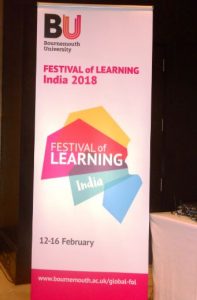
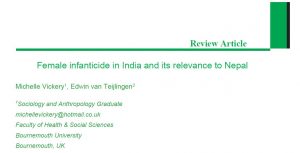

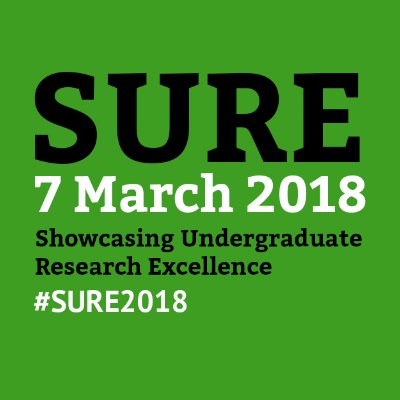
 Have you noticed this box on the BU Research Blog?
Have you noticed this box on the BU Research Blog?



 In November, the government published its
In November, the government published its 
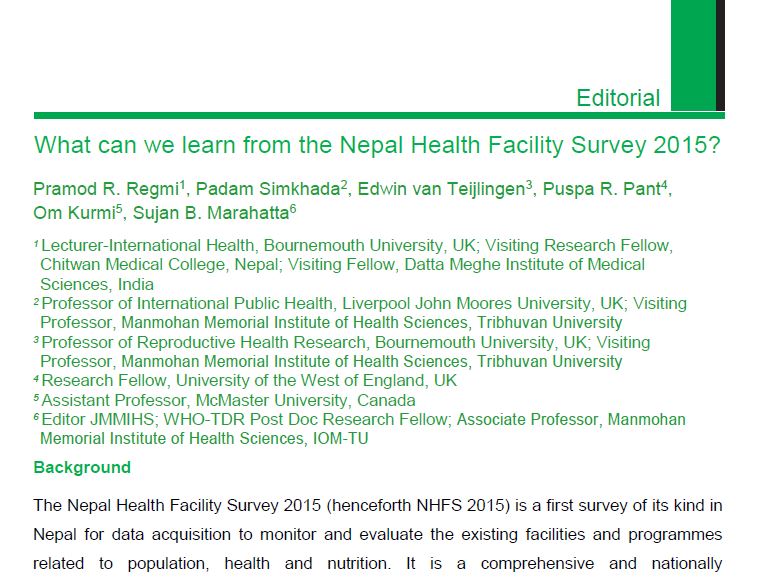
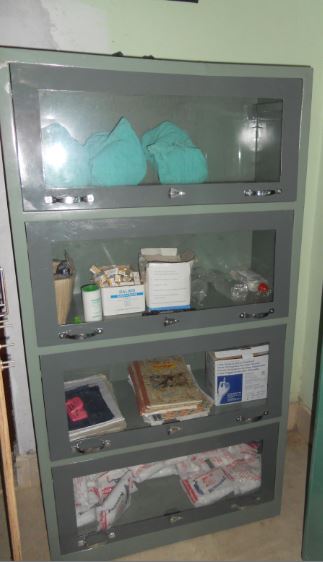

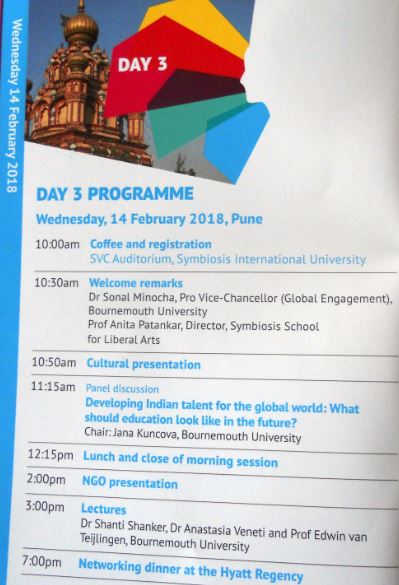
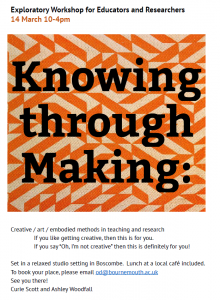











 Visiting Prof. Sujan Marahatta presenting at BU
Visiting Prof. Sujan Marahatta presenting at BU 3C Event: Research Culture, Community & Can you Guess Who? Friday 20 March 1-2pm
3C Event: Research Culture, Community & Can you Guess Who? Friday 20 March 1-2pm Beyond Academia: Exploring Career Options for Early Career Researchers – Online Workshop
Beyond Academia: Exploring Career Options for Early Career Researchers – Online Workshop UKCGE Recognised Research Supervision Programme: Deadline Approaching
UKCGE Recognised Research Supervision Programme: Deadline Approaching SPROUT: From Sustainable Research to Sustainable Research Lives
SPROUT: From Sustainable Research to Sustainable Research Lives ECR Funding Open Call: Research Culture & Community Grant – Apply now
ECR Funding Open Call: Research Culture & Community Grant – Apply now ECR Funding Open Call: Research Culture & Community Grant – Application Deadline Friday 12 December
ECR Funding Open Call: Research Culture & Community Grant – Application Deadline Friday 12 December MSCA Postdoctoral Fellowships 2025 Call
MSCA Postdoctoral Fellowships 2025 Call ERC Advanced Grant 2025 Webinar
ERC Advanced Grant 2025 Webinar Update on UKRO services
Update on UKRO services European research project exploring use of ‘virtual twins’ to better manage metabolic associated fatty liver disease
European research project exploring use of ‘virtual twins’ to better manage metabolic associated fatty liver disease